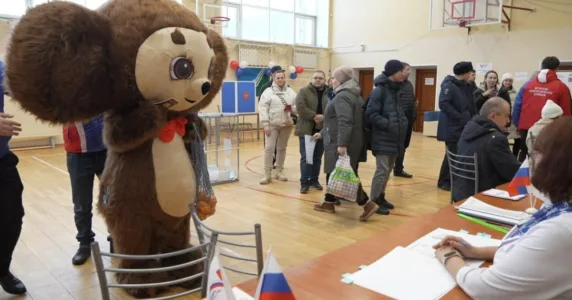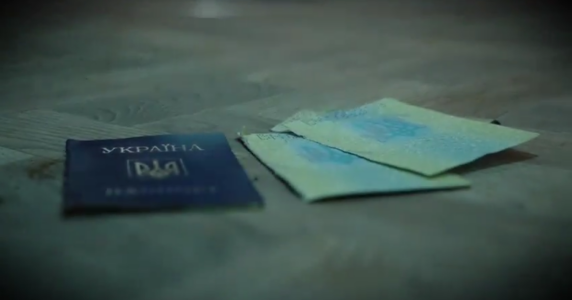Navigation and useful materials
On March 15-17, presidential “elections” will be held in Russia. There will be no surprises: Putin will be declared the winner, prolonging his rule until 2030. Back in October last year, the Parliamentary Assembly of the Council of Europe called on the member states of the Council of Europe to recognize Putin as illegitimate after the completion of his current term. Will the international community dare to take such a step?
Voting under occupation
There are more than enough grounds for recognizing the upcoming Russian “elections” as null and void. Firstly, the voting will take place in the temporarily occupied territories of Ukraine: in Crimea, as well as in the occupied areas of Donetsk, Luhansk, Kherson, and Zaporizhzhia oblasts. A comprehensive legal description of the Kremlin’s actions is contained in the resolution of the Central Election Commission of Ukraine dated July 7, 2023, adopted in connection with the occupiers’ intentions to hold “elections” in the occupied territories in September last year:
“The lack of sovereign power in Russia over Ukrainian territories does not allow the occupying state to appoint and hold legitimate elections in them, and all elections appointed by the aggressor state outside its jurisdiction, in violation of the sovereignty, political independence, and territorial integrity of Ukraine, are a priori illegitimate.”
The Kremlin is interested in holding “elections” in the temporarily occupied territories, not only as a means of their integration into the Russian Federation. There may be about 6 million potential voters in these regions, who will be used to “present” a convincing victory of Putin.
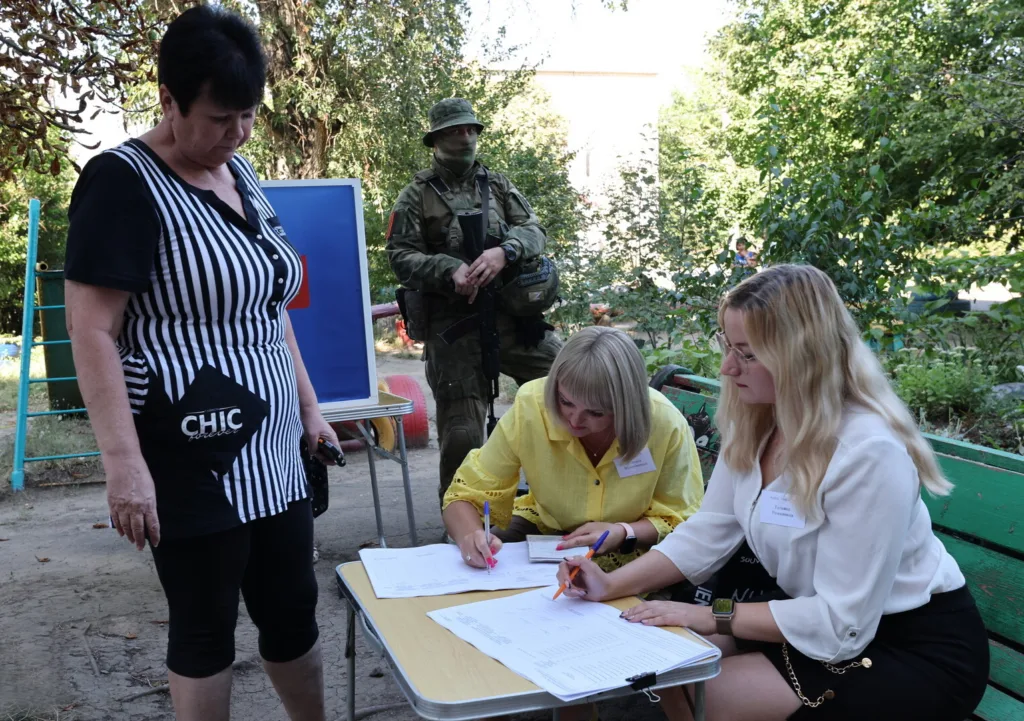
Since 2014, there has been enough evidence that the temporarily occupied territories are used by the Kremlin for the most shameless machinations. For example, in September 2023, the occupiers said that in Kherson Oblast, more than 65% of voters took part in the Single Election Day (which actually lasted three days). However, according to Dementii Bilyi, the head of the Kherson regional organization of the Committee of Voters of Ukraine, “the occupiers could not even present a picture of the election process.” In addition, the occupation authorities widely use administrative pressure, intimidation of “voters,” not to mention basic falsification of the results.
There is no doubt that all this will happen again in March 2024. For example, back in December 2023, the UK Ministry of Defence, citing intelligence data, stated the following:
“The Russian authorities almost certainly see achieving the ‘correct’ results in these regions as a priority because they want to give the perception of legitimacy to Russia’s invasion. The Russian administration will almost certainly utilise methods including substantive electoral fraud and voter intimidation to ensure Russian President Vladimir Putin wins in the regions by a substantial margin.”
Cementing the dictatorship
As for Russia itself, the March “elections” will be the next stage in the formation of Putin’s dictatorial regime, which has lasted almost a quarter of a century. According to the 1993 Constitution of the Russian Federation, a person was not entitled to hold the presidency for more than two consecutive terms. In 2008, this “problem” was solved by carrying out the “successor” operation: until 2012, Russia was ruled by the duo of Medvedev-Putin. Preparing for the reinstatement of the latter to his position began in 2008, when the term of office was extended from 4 to 6 years, and the changes were to come into force for Medvedev’s successor, that is, Putin.
The legal registration of Putin’s personalist dictatorship was completed in 2020, during his fourth presidential term. Then the Constitution of the Russian Federation was amended, which, in particular, allowed him to run again. The Venice Commission criticized the Russian “constitutional reform,” and the European Parliament declared the amendments illegal, but the change was made: Putin was able to remain in power until 2036, that is, effectively for life (today the Russian dictator is 71 years old).
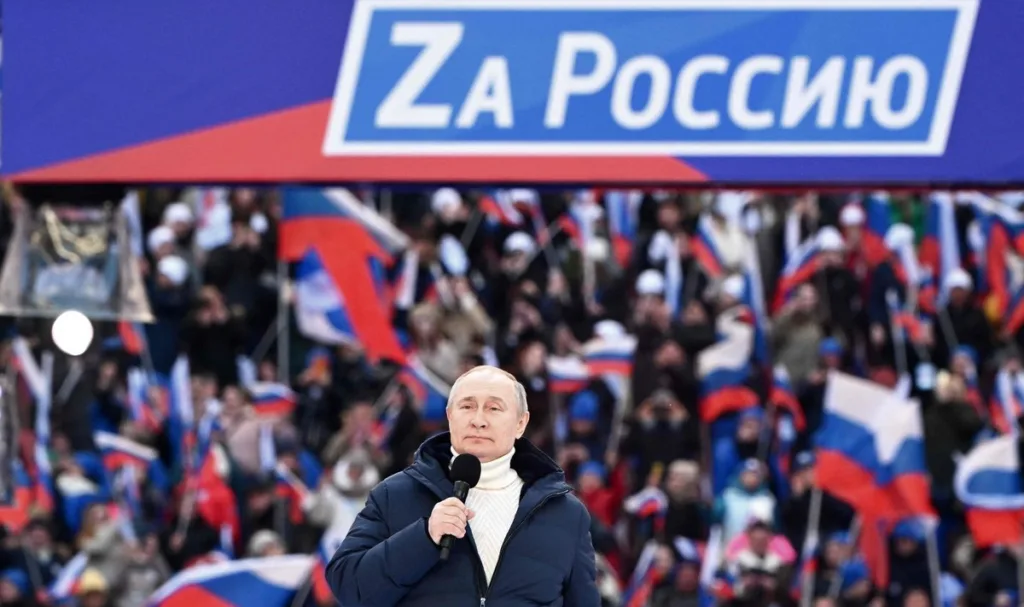
But the dictatorship was built not only through the described legal manipulations and falsifications during elections and plebiscites. Simultaneously, the Russian Federation was cleansing the political and media field, as well as suppressing the sprouts of civil society. Instead of real opposition candidates, Putin was always opposed by a loyal sparring partner, while political and public figures, who at least theoretically could undermine the status quo, were forced to emigrate, subjected to repression, or even physically destroyed. This time, the Kremlin decided to do without even imitating competition: Boris Nadezhdin, who positioned himself as a liberal alternative to Putin, has been recently removed from the election.

Today, the Kremlin has a whole arsenal of repressive tools that allow it to instantly deal with dissidents, such as the notorious laws on foreign agents, “fakes” about the army, etc. For example, in November 2023, Russian artist Aleksandra Skochilenko was sentenced to 7 years in prison for placing five anti-war postcards instead of price tags in a supermarket. According to independent analysts, in 2018-2022, 50 repressive laws were adopted in Russia, and 38 laws were adopted after the beginning of the full-scale invasion of Ukraine. They are actively applied: according to the Memorial Human Rights Center (banned in Russia in December 2021), today, there are more than a thousand political prisoners and persons persecuted because of their religious views in Russia.
So, Putin’s dictatorship is a reality. International recognition of the upcoming “elections” in Russia will be a signal that the world is ready to accept it as a given. This will encourage Putin to carry out his criminal intentions both inside and outside Russia, as well as inspire other authoritarian leaders around the world.
Exemption from illusions
Of course, the non-recognition of the Russian elections will require the international community to thoroughly revise its strategy towards Russia. For a long time, the Western political establishment cherished the hope that Putin’s regime would, sooner or later, collapse as a result of the resistance of Russian society. The protests of 2011-2012, which began with large public rallies on Bolotnaya Square in Moscow, fuelled these hopes especially strongly. However, this did not lead to real changes. Already in 2014, Putin plunged Russians into the “Crimean euphoria,” which strengthened loyalty to the regime and became a political pretext for intensifying repression against dissenters. The symbol of the final collapse of hopes in the early 2010s was the murder of Boris Nemtsov in 2015. Soon, the West extrapolated its hopes to another Russian figure, Alexei Navalny, who in 2017 began to gain popularity as a fighter against corruption. However, his fate is well known; in 2021, he was imprisoned, and his supporters failed to shake the Russian society.
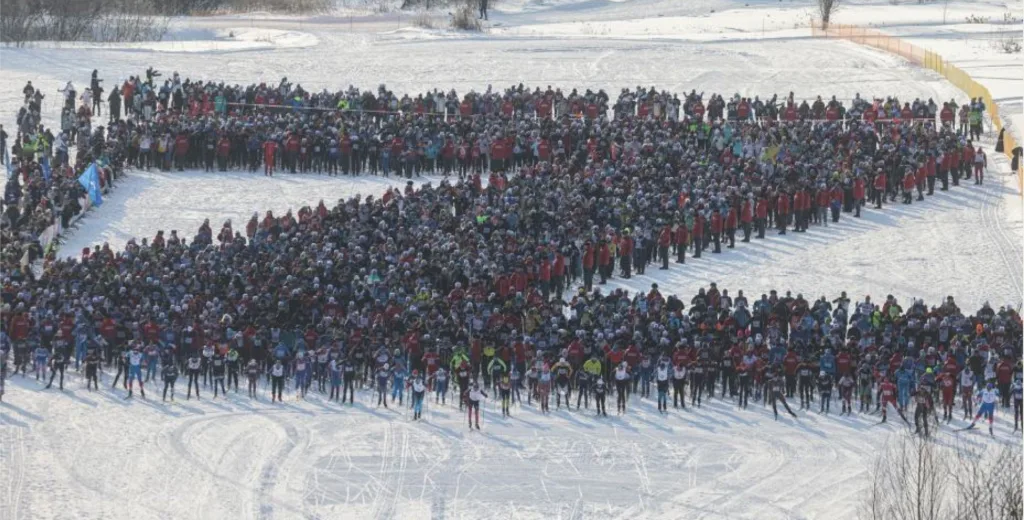
Even a full-scale invasion of Ukraine did not shake the Putin regime. On the contrary, the world has seen how passive (or loyal) the Russian majority is, which is ready to humbly bear the burden of sanctions and the war. Opposition-minded figures, most of whom emigrated outside Russia, showed a complete inability to influence the processes in their country, and some of them possess an inadequate perception of reality. For example, in April 2022, Navalny called on the West to spend money not on Javelins for Ukraine, but on targeted advertising of Russian opposition resources on social networks.
In this sense, the non-recognition of the Russian elections (and therefore the recognition of Putin as a usurper, and his regime as a dictatorship that actually took place) will become for the West a symbolic farewell to illusions and false expectations about Russia. This will be an important step towards recognizing that the passive strategy of waiting for positive changes in Russia has failed, and moreover, has led to tragic consequences, such as Russia’s attack on Ukraine. Therefore, the West will need a more effective, proactive approach in confronting the global threat posed by Putin’s dictatorship.
If you have found a spelling error, please, notify us by selecting that text and pressing Ctrl+Enter.
